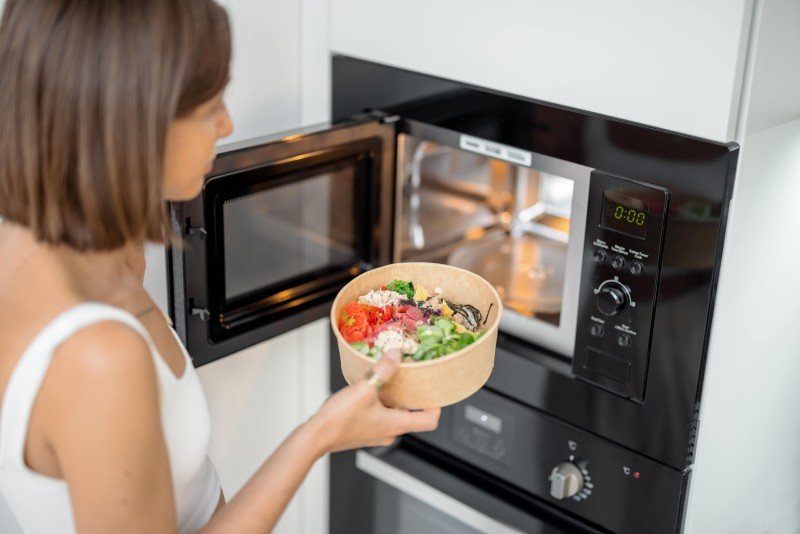Understanding Cookers and Hobs: A Comprehensive Guide
Cooking is an important aspect of every day life, and the evolution of kitchen home appliances plays a considerable function in how efficiently and efficiently individuals prepare their meals. Amongst these appliances, cookers and hobs are two of the most essential instruments discovered in modern-day kitchens. This post looks into the distinctions between cookers and hobs, analyzes their numerous types, and provides insights on their functions, maintenance, and selection procedure.
What are Cookers and Hobs?
Cookers
Cookers are comprehensive kitchen devices designed for cooking jobs, generally combining an oven and a hob. Sales Ovens can be found in numerous configurations and types, catering to varied cooking needs and choices.
Hobs
Hobs, on the other hand, are more concentrated devices primarily used for boiling, frying, and other stovetop cooking methods. Hobs can be standalone systems or an integrated part of bigger cookers.
| Function | Cookers | Hobs |
|---|---|---|
| Function | Combines oven and hob | Stovetop cooking only |
| Style | All-in-one system | Different system or integrated |
| Types | Electric, gas, dual fuel | Gas, electric, induction |
| Installation | Enables more flexibility | Built into the counter top |
| Rate Range | Usually greater | Varies extensively |
Kinds of Cookers
1. Electric Cookers
Electric cookers use electricity as their primary power source. They frequently include a built-in oven and several cooking zones on the hob.
Advantages:
- Even heat circulation
- Readily available in numerous styles (e.g., freestanding, built-in)
2. Gas Cookers
Gas cookers operate on gas or liquefied petroleum gas (LPG). They offer instant heat control, making them a preferred among expert chefs.
Advantages:
- Instant heat changes
- More economical operational expenses
3. Dual Fuel Cookers
Dual fuel cookers integrate the heat of gas with the effectiveness of electric ovens. This setup permits the best of both worlds, providing control and consistent outcomes.
Advantages:
- Flexible cooking alternatives
- Accurate control over stovetop cooking and baking
4. Range Cookers
Range cookers are larger and more effective than standard cookers, featuring several ovens and hobs for substantial cooking jobs.
Advantages:
- Ideal for big families or cooking for occasions
- Uses numerous cooking options in one device
Types of Hobs
1. Gas Hobs
Gas hobs are favored for their fast heating and strong flame, making them exceptional for searing and stir-frying.
Benefits:
- Instant heat and control
- Compatible with any type of pots and pans
2. Electric Hobs
Electric hobs warm up using electric coils or glass-ceramic surface areas, supplying a modern-day look and efficient cooking.
Benefits:
- Easier to clean
- Consistent surface area appropriate for numerous pots and pans
3. Induction Hobs
Induction hobs utilize electromagnetic fields to heat pots and pans straight, using fast and energy-efficient cooking.
Advantages:
- Safe (cool surface area after getting rid of cookware)
- Energy-efficient and precise
4. Strong Plate Hobs
These traditional hobs use strong electric plates that heat up slowly.
Advantages:
- Rugged and durable
- Normally more cost effective than other types
Secret Features to Consider
When picking a cooker or hob, several functions need to be taken into consideration:
- Size and Space: Consider the size of your kitchen and the quantity of work space required.
- Cooking Style: Choose based on choice-- gas for control, induction for effectiveness, and so on.
- Efficiency Ratings: Look for energy-efficient models to lower utility bills.
- Relieve of Cleaning: Smooth surfaces assist in simple maintenance.
- Safety Features: Automatic shutoff, flame failure devices, and child locks boost safety.
Maintenance Tips
Maintaining cookers and hobs lengthens their life expectancy and makes sure safe operations.
- Routine Cleaning: Wipe down surface areas after use to prevent accumulation.
- Examine Seals: Check oven door seals regularly for wear and tear to preserve effectiveness.
- Service Regularly: Schedule expert maintenance at least once a year.
- Ideal Cookware: Use pots and pans suitable for your hob type to prevent damage.
Frequently Asked Questions (FAQs)
What is the difference in between a cooker and a hob?
A cooker integrates an oven and hob in one system, while a hob is typically a standalone appliance for stovetop cooking.
Do I require a professional to install a gas cooker or hob?
Yes, professional installation is advised for gas home appliances to make sure safety and compliance with regional guidelines.
Can I use any type of cookware on induction hobs?
Induction hobs require magnetic pots and pans. Sales Ovens -steel or cast iron pots work best. Fan Ovens For Sale -magnetic materials will not warm up.
Are electric cookers more energy-efficient than gas cookers?
While both have advantages, electric cookers tend to be more energy-efficient general, particularly with contemporary, high-efficiency designs.
How often should I clean my cooker or hob?
It is best to clean them after each usage and carry out an extensive cleansing weekly to prevent buildup and residue.
Comprehending the distinctions, functions, types, and upkeep pointers for cookers and hobs is important for any home cook. By choosing the ideal device suited to their cooking requirements, users can improve their cooking experience, making meal preparation an efficient and pleasurable chore. Whether selecting the immediate control of gas or the smooth effectiveness of induction, picking the appropriate cooker or hob can lead to a significantly enhanced kitchen experience.

